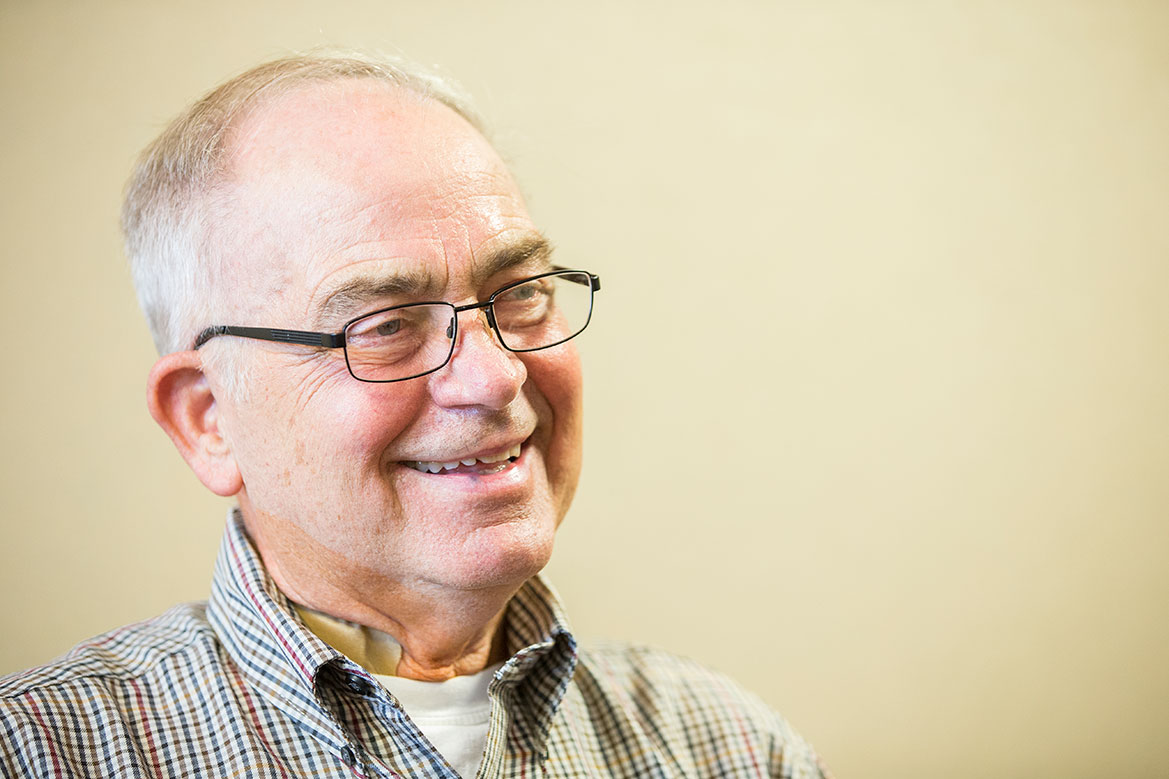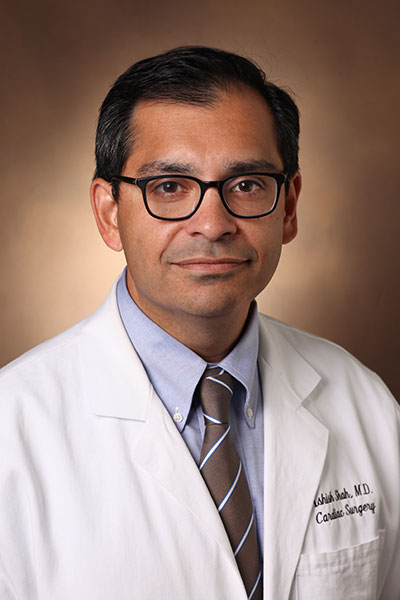Age is Not an Absolute
On paper, this man didn’t seem a good candidate for organ transplant. A story of a medical team paying careful attention to the patient.
Heart Transplant

Vanderbilt's oldest patient to undergo combined heart/kidney transplant
Rex Parton was 71 when he faced end-stage organ failure of his heart and kidneys.
That’s beyond the age that most transplant centers are willing to consider someone for such a complex procedure as an organ transplant. Parton asked the team at Vanderbilt University Medical Center to look past his clinical age, however, and focus on him as an individual.
As a result, Parton became the medical center’s oldest patient, at that point, to undergo a combined heart/kidney transplant.
“We can never thank them enough for pressing forward. They gave me my life back,” Parton said. “I’m working out in the yard, trimming bushes, mowing the grass. If the doctors came down to watch me, they wouldn’t believe it!”
Nancy Parton echoes her husband’s sentiments.
“We have quality of life again and I feel like we have a future together again,” she said. “He is the love of my life and they gave him back to me.”
More doctors reconsider transplant eligibility for seniors
Advances in transplantation procedures, improved survival rates and the aging population have prompted more doctors to reconsider transplant eligibility for patients 65 and older.
Vanderbilt Heart and Vascular Institute offers ventricular assist devices (VADs) as a treatment for patients who are not candidates for heart transplantation; and also as a temporary aid to for those patients who hope to eventually receive a donor heart.
Parton had a left ventricular assistance device (LVAD) implanted because he had ongoing heart problems, including congestive heart failure. Soon afterward, though, his kidneys failed and he started dialysis. The combination was tough on his body, and he became very ill.
But there was something different about Parton, said Ashish Shah, MD, professor of Cardiac Surgery and surgical director of Heart Transplant and Mechanical Circulatory Support.
“He was such a good patient as far as his compliance, his ability to successfully follow a complex medical regime, his high health care literacy and his self-advocacy,” Shah said. “Age and renal failure made him not a good candidate on paper, but because of our collective experience, we set aside conventional wisdom and utilized our instinct.”
Expanding the team’s horizons
Parton was put on the transplant waiting list. Four weeks later, donor organs were available.
“I cannot explain the feeling when we got that phone call,” Parton said.
The Partons drove nearly three hours from Athens, Tenn., to Vanderbilt.
“That drive was a quiet one,” recalled Parton. “I was calming my mind, talking to the good Lord and getting prepared for surgery while Nancy drove.”
Parton’s heart transplant was followed by his kidney transplant a day later. He spent nearly a month in Nashville before heading home.
“We have quality of life again and I feel like we have a future together again."
“Right before the LVAD, I couldn’t walk 60 feet before I had to stop to get my breath,” Parton said, several months after his surgeries. “But now, I am enjoying life. When I come out of rehab I feel so, so good. I’m up to four and a half miles a day. I am amazed myself!”
The Vanderbilt transplant team is pleased, too.
“We were able to give him back his quality of life,” Shah said. By simply having functioning kidneys, a functioning heart, no battery, no dialysis, no power cords — Parton’s life dramatically improved.
Parton’s double organ transplant at age 71 also influenced the medical team’s view of other patients’ potential success with organ transplants.
“It’s an affirmation that this is a program where we tackle complicated cases,” Shah said. Also, he said, “it has expanded our horizons and our mindset about what candidacy for advanced therapies looks like.”
According to United Network for Organ Sharing (UNOS), in 2017 (the most recent year for which data is available, and the year after Parton’s transplants), there were just 32 combined heart-kidney transplants for people age 65 and older.
“He really showed a lot of gumption in his recovery,” said JoAnn Lindenfeld, MD, professor of Medicine and director of the Heart Failure and Transplant Section at Vanderbilt Heart. “We really are all about patient-centered care and listening to our patients and families. Their input and feelings are important in the way that we run our program.”
Heart Transplant
Ashish S. ShahMD
- Aortic Center, Cardiac Surgery, Cardiac Tumors, Cardiac Valve Disease, Heart Assist Devices, Heart Valve Center, Hypertrophic Cardiomyopathy & Inherited Disease
